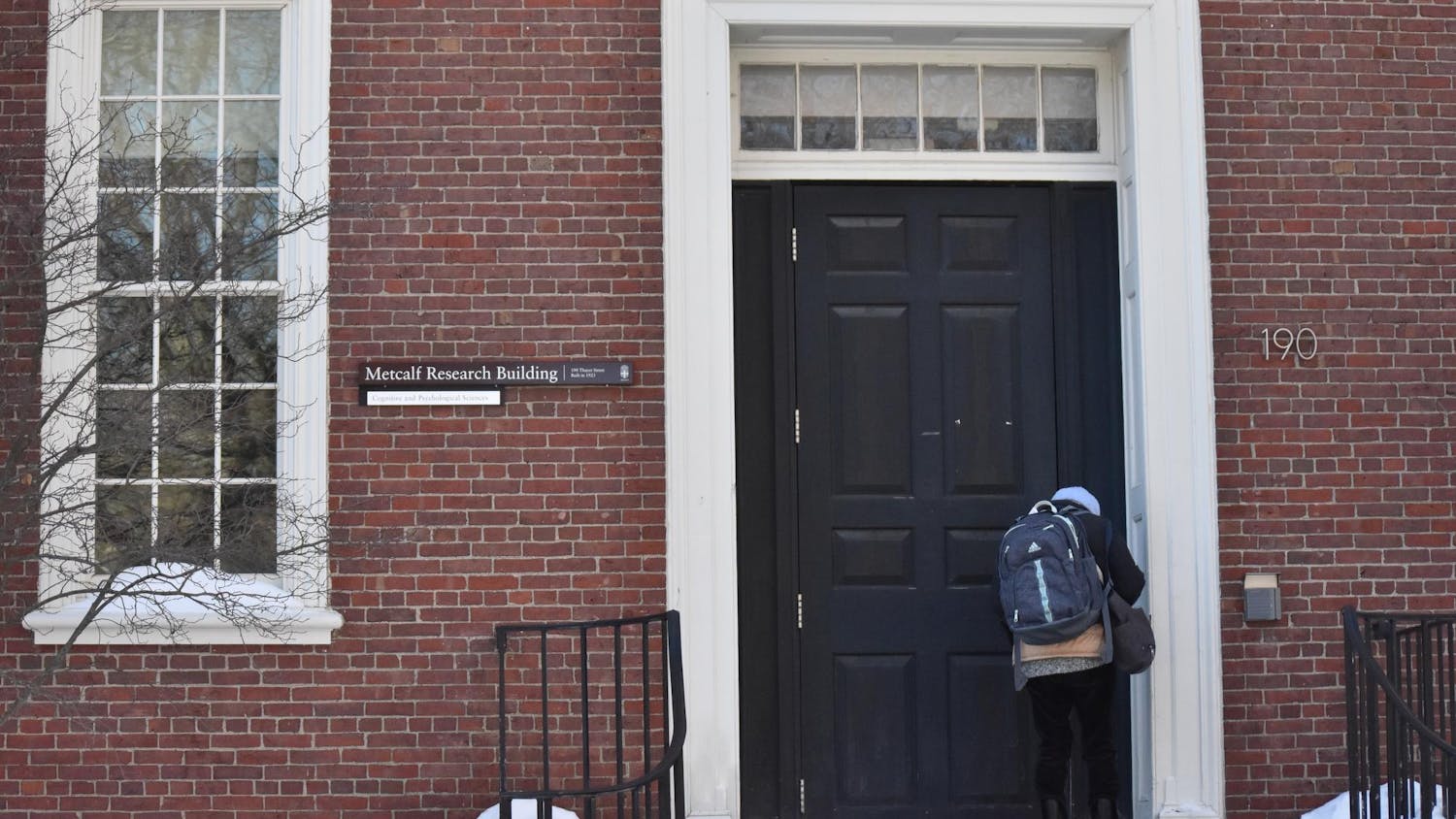Indigenous Scholar in Residence Eduardo de la Cruz (Nahua) gave a presentation about Nahua adolescents and their awareness of historical Indigenous resistance to Spanish colonialism in the Sciences Library Tuesday. The event, titled “Perspectivas y reflexiones de jóvenes nahuas ante la conquista de México,” was organized by the Center for Language Studies, the Department of Hispanic Studies and the Native American and Indigenous Studies Initiative.
De la Cruz is director of Instituto de Docencia e Investigación Etnológica de Zacatecas, a research institute based in Mexico “led by native Nahuatl speakers that works on language revitalization,” according to a Nov. 2020 NAISI bulletin. The Nahua People are an indigenous group native to Mexico, El Salvador and other parts of Latin America.
De la Cruz has taught Nahuatl at Yale, Stanford University and the University of Chicago, and is currently a visiting lecturer for Nahuatl at Brown.
During his talk, which was conducted in Spanish with English slides projected for attendees, De la Cruz presented his findings from a series of interviews he conducted with 12- to 16-year-old adolescents in El Tecomate and Veracruz, two municipalities in Mexico. According to de la Cruz, the Mexican education system portrays Indigenous groups as defenseless against Spanish colonization, instituting a victim mentality among Indigenous youth.
In his interviews with the Nahua youth of El Tecomate, de la Cruz found that many school children believed there was no Indigenous resistance during La Conquista, the collapse of the Mexica Empire — also known as the Aztec Empire — due to Spanish colonization. “The natives did nothing out of fear,” said one 13-year-old who de la Cruz interviewed.
To help remedy this knowledge gap, de la Cruz is working on translating the Florentine Codex — a 16th-century ethnographic study originally written in classical Nahuatl describing Mexica culture, politics and history — to modern Nahuatl through the Getty Research Institute.
The Florentine Codex, which describes Spain’s conquest of the Mexica Empire from the perspective of Indigenous elders, demonstrates the presence of Indigenous resistance, according to De la Cruz. But because there is no updated translation of the study in modern Nahuatl, the text is not accessible to contemporary Indigenous communities.
When interviewing the adolescents of El Tecomate, de la Cruz presented them with a partial summary of an excerpt from the codex. In his presentation, de la Cruz shared how these adolescents were surprised to learn about this history of Indigenous resistance, as well as the rich intellectual history of Nahua scholars.
“It is our responsibility as academics … to ensure that these documents … are accessible and visible to the public,” de la Cruz said. “Access will give visibility to the Nahua intellectuals of the past.”
“History is not something of the past; it affects us in every aspect of the present. How it is remembered and taught is impactful,” he added.
De la Cruz argued that with this translation, Nahua youth will have a stronger understanding of Indigenous history while also gaining increased exposure to the endangered language. He ultimately aims to make the translation accessible to the public online and free of charge.
De la Cruz is currently teaching three Nahuatl language classes at the University which “emphasize the relevance of Nahuatl as a living language, not a language of the past,” according to the Center for Language Studies website. He came to the University in 2020 on a NAIS Faculty Grant after students expressed interest in Nahuatl language studies by creating a Group Independent Study in Nahuatl.
As part of de la Cruz’s residency at Brown, he will be leading a Maize Ceremony Wednesday, March 15 and a Nahuatl pedagogy demonstration this Thursday, March 16.
Indigo Mudbhary is a University news senior staff writer covering student government. In her free time, she enjoys running around Providence and finding new routes.





